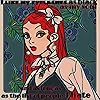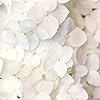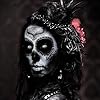Poll

Most books reviews are subjective (I love/hate)and some of us are more interested in objective information: Cheating, age of the heroine, length of the book, part of a series, slow burn romance vs. insta love. What kind of objective information would you like to see more talked about in reviews. Add as many as you want.
I just need info on the genre and the general tropes, Opinions are subjective, I love books someone else hates and viceversa.
I actually like the whole picture: if there is cheating, mention how, if it's slow burn or not explicit, say so, generally the things the blurb did not say but are not expected or may influence your decision to read the book
(write-in)
Cheating, HEA, OW (other woman) OM (other man)
Cliffhanger ending vs. no loose ends and a good epilogue
Part of a series vs. stand alone
Explicit content vs fade to black.
Slow burn romance vs. Insta-love
Pace: Is the book difficult to put down?
Common PTSD triggers: rape, molestation, death of a parent, etc
I don't really read reviews.
(write-in)
I tend to read reviews after I've finished and reviewed a book. To see what others thought.
(write-in)
Tropes: enemies to lovers, bully romance, forced marriage
Age of the main character
it's a combination of two.i like to know if it has PTSD triggers like rape and ilke to know the tropes like bully romance and forced marriage.
(write-in)
Is the heroine too stupid to live?
(write-in)
Quality of the writing, plot development, characterisation, and world building - how good / bad they are. Trigger warnings for toxic behaviour whether intentional or not..
(write-in)
Babies, I'm not fond of babies.
Narrative style: First vs. Third person
High angst vs. low angst
Told in multiple POVs
(write-in)
I want to know if there are obscenities and profanities.
(write-in)
Historical accuracy
(write-in)
Poll added by: Parvati Patil
Comments Showing 1-28 of 28 (28 new)
date newest »
newest »
 newest »
newest »
message 1:
by
Camila
(new)
Sep 27, 2020 11:48AM
 Damn I have no idea how to answer this 😅 I like to include a little bit of everything when I review books. I guess when I read reviews, I def wanna know if it’s a standalone/what kind of ending/pace/tropes/etc.
Damn I have no idea how to answer this 😅 I like to include a little bit of everything when I review books. I guess when I read reviews, I def wanna know if it’s a standalone/what kind of ending/pace/tropes/etc.
reply
|
flag
 I can’t vote on all that I want, but cliffhangers and angst are the biggest for me. Cliffhangers, because I cannot STAND them, and angst because I read a lot of YA books and have grown too old for the younger more angsty of the genre.
I can’t vote on all that I want, but cliffhangers and angst are the biggest for me. Cliffhangers, because I cannot STAND them, and angst because I read a lot of YA books and have grown too old for the younger more angsty of the genre.All the other info is really a non-issue for me.
 Megan wrote: "I can’t vote on all that I want, but cliffhangers and angst are the biggest for me. Cliffhangers, because I cannot STAND them, and angst because I read a lot of YA books and have grown too old for ..."
Megan wrote: "I can’t vote on all that I want, but cliffhangers and angst are the biggest for me. Cliffhangers, because I cannot STAND them, and angst because I read a lot of YA books and have grown too old for ..."I do agree with the angst. If it’s over the top I want nothing to do with it.
 My top 3 are:
My top 3 are:Pace - I love fast-paced, unputdownable books and those usually have lower ratings because many so-called top reviewers don't mention pace in their reviews. They don't care for pace, but are nitpicky about other things. Case in point: The Da Vinci Code, Twilight.
Tropes - There are tropes I hate like manwhores, cheating and babies or what I call the "Renesmee syndrome"
Age and Explicit content- I'm interested in the age of the main characters and whether the book includes explicit content. I'd rather my romance choices to have some steam, but if the characters are too young (underage) or too old (35-years-old or above protagonists with children and previous marriages) I can't relate to them and I just don't care for the characters and their problems, when I can't relate. I just don't care for smut when the characters are the wrong age.
 Parvati Patil wrote: "My top 3 are:
Parvati Patil wrote: "My top 3 are:Pace - I love fast-paced, unputdownable books and those usually have lower ratings because many so-called top reviewers don't mention pace in their reviews. They don't care for pace, ..."
Funny is, I can care about more aged or with-age-gap characters BUT for some reason, if one of the characters is too old (relative number) I just keep thinking how he is way too "old" and how he's gonna die too soon and how he pretty much wasted his life and now they can't properly enjoy their relationship and I don't know why O just see all that as a wasted potential and it makes me feel sad and depressed and... Is(n't) that weird 😁?
 This was hard for me too! I don't remember what I voted!?! But I don't mind the negative reviews too much. I don't like it when I'm reading a book and unknowingly to airhead me, it ends with a cliffhanger!!
This was hard for me too! I don't remember what I voted!?! But I don't mind the negative reviews too much. I don't like it when I'm reading a book and unknowingly to airhead me, it ends with a cliffhanger!!
 Pace can be a hard thing to judge. Are you referring to how quickly things go from one to another or how easy it is for you to get sucked into the story? I find some books I read lightening quick if I care about the characters and sucked in by the story even if it isn't filled with action from page 1 to the last page. I like some depth to my characters and descriptions. Some action-packed books bore me because it seems to be repetitive. But too much description can bore me too. Some time it depends on my mood.
Pace can be a hard thing to judge. Are you referring to how quickly things go from one to another or how easy it is for you to get sucked into the story? I find some books I read lightening quick if I care about the characters and sucked in by the story even if it isn't filled with action from page 1 to the last page. I like some depth to my characters and descriptions. Some action-packed books bore me because it seems to be repetitive. But too much description can bore me too. Some time it depends on my mood.
 Vintagebooklvr wrote: "Are you referring to how quickly things go from one to another or how easy it is for you to get sucked into the story?"
Vintagebooklvr wrote: "Are you referring to how quickly things go from one to another or how easy it is for you to get sucked into the story?"Both. The examples I provided were The Da Vinci Code, that has no character development, but it's action-packed with a compelling mystery, and Twilight that is all about a fast-paced romance, by chapter 13 they're already swearing undying love.
 Viki /LostForReal/ wrote: "Is(n't) that weird 😁?"
Viki /LostForReal/ wrote: "Is(n't) that weird 😁?"Do you like age difference in paranormal romance? In contemporary romance?
 Parvati Patil wrote: "Viki /LostForReal/ wrote: "Is(n't) that weird 😁?"
Parvati Patil wrote: "Viki /LostForReal/ wrote: "Is(n't) that weird 😁?"Do you like age difference in paranormal romance? In contemporary romance?"
I am not sure I ever read an age gap in paranormal - because if it is there, it's with some long living race or something so what I described doesn't really apply so I don't consider it an age gap.
It is "relevant" (for me) only in contemporary, where it actually matters that one of them is 20 and the other one 35 or something. Because there, you work with the whole "different generation" and "upbringing" etc. and just see those years as something they have to work through to get their HEA.
Do I like it? Well, because my weird feelings about how sad it is one of them met The One, the love of their lives when he's already lived "half of his life", I usually don't like it. I like the concept as it usually translates to this "inexperienced-guide" polarity, when all those extra years means he is more confident and knows more and such but I still have that "Wasted potential" feeling in the back of my mind and that usually ruins it for me 😑.
 I hate cliffhangers with a passion. I check reviews before I start a book to see if there are any mentions of cliffhangers. If there are, then I need to know if the series is complete. I refuse to start a book with cliffhangers where the series is still in progress. And I get so frustrated if I stumble on this by mistake. This is a bit of a disadvantage because it means I avoid new release series when each book is not fully resolved.
I hate cliffhangers with a passion. I check reviews before I start a book to see if there are any mentions of cliffhangers. If there are, then I need to know if the series is complete. I refuse to start a book with cliffhangers where the series is still in progress. And I get so frustrated if I stumble on this by mistake. This is a bit of a disadvantage because it means I avoid new release series when each book is not fully resolved. About the reviews themselves, I prefer subjective because I want to see if other readers felt the same way about events and characters. I like to see if my reactions make sense or are common among the readers. Also to see other different perspectives and rationals.
For me everything else is not as important.
 I prefer UF genre, but I love a good romance in it (I'll dip into paranormal, but that's usually a bit too angsty for me), and I also enjoy historical mysteries with romance, so I really love reviewers that get down to the basics and tell me what tropes are in the book and if there's OW/angsty misunderstandings (my personal pet-peeves). It saves me money I rather spend in a book I'll fully enjoy.
I prefer UF genre, but I love a good romance in it (I'll dip into paranormal, but that's usually a bit too angsty for me), and I also enjoy historical mysteries with romance, so I really love reviewers that get down to the basics and tell me what tropes are in the book and if there's OW/angsty misunderstandings (my personal pet-peeves). It saves me money I rather spend in a book I'll fully enjoy.I also really, really appreciate when reviewers mention inclusion of sexual assault (full or attempt). Some times you can guess that's where the story is going depending on the blurb, but it really takes some digging into the 2 star reviews to figure it out. (I try to always make a note about this in my reviews as well, if the book looks dark.)
 I actually like subjective reviews from GR users who I know have similar tastes to mine, but I take all reviews with a grain of salt.
I actually like subjective reviews from GR users who I know have similar tastes to mine, but I take all reviews with a grain of salt. Since I hate "icky" surprises, I really appreciate when reviewers post up content warnings for common PTSD triggers. I do not have any PTSD related issues (I'm just that person who feels things a bit too much), but I do like to be mentally prepared and not blindsided by a book that's going to have rape, incest, child molestation, etc, in it.
 I wanted to pick a couple of these. I hate a cliffhanger. If you want me to read your next book, make this one so good that I'll want to read it. Don't try to force me to buy it.
I wanted to pick a couple of these. I hate a cliffhanger. If you want me to read your next book, make this one so good that I'll want to read it. Don't try to force me to buy it.I have read books about rape survivors, but I'd rather not. I was just thinking about this the other day. If this is a trigger for those who have suffered, then why are we including it in books? Who is it for if it's not to encourage the survivors?
And cheating? I'd never read a second book by an author that included outright cheating.
Age is also a factor for me. I don't like a big age gap in the characters. I don't mind 10 years or so, but much more than that and I don't appreciate it. I'll read these if I'm interested in the plot, but I can't turn off negative thoughts. Such as, he's going die way before she does.
Also, I'd add that I have to respect the characters. I don't want to read about someone who constantly makes poor choices.
 Dude there’s a lot yall cant expect me to only pick one but i picked one anyway. Age is a big deal for me but im too lazy to expound rn
Dude there’s a lot yall cant expect me to only pick one but i picked one anyway. Age is a big deal for me but im too lazy to expound rn
 Great question! I have to say my overall answer is that I'd love to discuss or hear about anything about a book. I consider all points of view and input. I love it when people point out what they found most interesting.
Great question! I have to say my overall answer is that I'd love to discuss or hear about anything about a book. I consider all points of view and input. I love it when people point out what they found most interesting.But I had to vote solid on slow burn vs. insta-love. That's one thing that instantly makes me turn down a story.
If it's insta-love I'm not the slightest bit interested. So, I appreciate knowing that in advance.
 I check for trigger warnings first; those influence whether I am able to continue with the book. Other general stuff that do not really influence my reading experience but will help are the age(s) of the main character(s) (it's weird going into a book thinking the MC is sixteen only to find out they're in college lol), number of books in the series (cliffhanger warning), number of POVs and so on.
I check for trigger warnings first; those influence whether I am able to continue with the book. Other general stuff that do not really influence my reading experience but will help are the age(s) of the main character(s) (it's weird going into a book thinking the MC is sixteen only to find out they're in college lol), number of books in the series (cliffhanger warning), number of POVs and so on.
 SWEETY wrote: "I can handle a lot of things in a book. I think it depends on the way the author writes things. I hate cheating but there have been times when I read a book for example [book:Land of the Beautiful ..."
SWEETY wrote: "I can handle a lot of things in a book. I think it depends on the way the author writes things. I hate cheating but there have been times when I read a book for example [book:Land of the Beautiful ..."Same on the YA and "clean" romances. Almost nothing makes me more angry than getting tricked into reading one. I want my romances as smutty as I can get. It's a good idea to have a shelf for those.
 I dont have any triggers really. But I cant stand cheating , most of the time if the story is a good one I'll read on but the cheating makes me put a star down so If I give the story a 4. Star then because of cheating I give it a 3.
I dont have any triggers really. But I cant stand cheating , most of the time if the story is a good one I'll read on but the cheating makes me put a star down so If I give the story a 4. Star then because of cheating I give it a 3.
 I actually like the subjective reviews that tell me what someone liked/disliked about this particular book. Most of the objective information here wouldn't be helpful to me because it all depends on the book. For most of these things I've read books where I liked them and books where I didn't.
I actually like the subjective reviews that tell me what someone liked/disliked about this particular book. Most of the objective information here wouldn't be helpful to me because it all depends on the book. For most of these things I've read books where I liked them and books where I didn't.I voted slow burn romance vs. insta-love because I really try to avoid insta-love. The other elements of a book would have to be really exceptionally good for me to read it anyway if I knew ahead of time that there was insta-love. If a book has insta-love and you want me to read it anyway, you'll have to really sell me on the other aspects of the story that might make it worth reading to me despite that.
The only other thing listed here that might matter to me in a sideways way is explicit content vs. fade to black except that's not really how I would put it for how it matters to me personally. I don't mind fade to black, and I also don't mind explicit content. What matters to me in regards to this is what I like to call the sex to plot ratio. Explicit scenes can be great (as long as they're not filled with ridiculous phrases that make me laugh and roll my eyes instead of get all hot and bothered), but the thing that I don't want is two pages that advance the plot or the characters followed by ten pages describing genitalia. I like the occasional sex scene in between lots of interesting plot and character development, NOT the occasional plot development in between lots and lots of sex sex sex.
Something that I find really helpful in reviews - but that isn't objective at all, so I didn't put it as a write-in - is read-alikes. Tell me if a certain aspect of the book/series had a similar feel to another book/series. That way, if I read the review ahead of time and I loved the read-alike, it will give me an additional push to try the book. And if I read the review after I finished (and liked) the book and I haven't read the read-alikes, I'll have something new to add to my tbr.
 I don’t read reviews before hand, because I want to go in with open mind. But I love to read them after to see if reviews are same conclusion as mine or something total different. The only time I really read them before is when I am debating on reading the book.
I don’t read reviews before hand, because I want to go in with open mind. But I love to read them after to see if reviews are same conclusion as mine or something total different. The only time I really read them before is when I am debating on reading the book.
 The pace depends on my mood, the author and how much time i can dedicate to reading.
The pace depends on my mood, the author and how much time i can dedicate to reading. I'm not a fan of cliffhangers, admittedly, some books need them and others are looking to turn everything into a trilogy to make more money.
I'm sad and glad to see that no one really has triggers selected. I wouldn't wish anyone into a situation where they would be triggered. But I would like to ask that people are mindful of those who may be by mentioning the possibility of a trigger in their reviews. It's hard because some think it'll ruin the review or make it negative, and you can't know what could be a trigger for someone. I have triggers that have more to do with the context it's written rather than the abuse itself, then i have a word or subject that's a trigger no matter what the situation is.
 Explicit content is the most important thing in a revie. Other than Amy Harmon nobody should write clean romance, that's OBSCENE lol!
Explicit content is the most important thing in a revie. Other than Amy Harmon nobody should write clean romance, that's OBSCENE lol!I hate lame PG13 content.
 When I really review a book I focus on:
When I really review a book I focus on:- Quality of writing, is the prose well written, are there spelling and grammar issues, does the dialogue work, do the descriptions make sense etc.
- Plot - pace, does it have holes, is it too predictable or convoluted, does it allow for character development.
- Character development, primary and secondary, do their actions match their personality, is there growth, do I engage with and/or relate to them.
- World building - is the universe explained, does it overshadow the plot/character dev, is it so convoluted as to be impenetrable, or does it lift me from my reality and wish I never had to go back?
- What delights or drives me nuts about the book and why. Does it contain manipulative cliffhangers? Is it more concerned with setting the scene for future books in the series than telling the story of the protagonists? Is it a good book for it’s intended audience, for example, does it perpetuate bad tropes for young minds or misrepresent marginalised communities and lifestyles?
- Discussion around problematic themes, characters, scenes and how the author handles them, were they intentional, are they based on tired tropes, etc.
- Would I recommend the book and would I read the rest of the series and/or more by this author.
I try to avoid writing a synopsis and character profiles as this is what the blurb is for. When I read your review I want to know what you thought of the book, not your take on the blurb, so unless I’m trying to find out what happens on a DNF or find out if books further in a series are better after I rate the first as 1 or 2 stars I tend to avoid synopsis style reviews.
When speculating on a new read from an unknown author I look at cost of book and the number of middling to negative reviews, if high number of neg reviews I read a few of the most liked neg reviews then look at the positive ones before I decide to take the plunge on a new author.
 I want to know the tropes, but I also want to know information about the ending. Like if there is more than one love interest, which one does she end up with, or is there a happy/sad ending. I read a trilogy where the heroine had to choose between her first love and someone she fell in love with after she thought the first hero was dead, and I wouldn't have been able to enjoy the series without knowing who she ended up with. Spoiled it for myself and then was able to enjoy reading it without the added tension of trying to figure out who it would be lol
I want to know the tropes, but I also want to know information about the ending. Like if there is more than one love interest, which one does she end up with, or is there a happy/sad ending. I read a trilogy where the heroine had to choose between her first love and someone she fell in love with after she thought the first hero was dead, and I wouldn't have been able to enjoy the series without knowing who she ended up with. Spoiled it for myself and then was able to enjoy reading it without the added tension of trying to figure out who it would be lol
 Ashley wrote: "I want to know the tropes, but I also want to know information about the ending. Like if there is more than one love interest, which one does she end up with, or is there a happy/sad ending. I read..."
Ashley wrote: "I want to know the tropes, but I also want to know information about the ending. Like if there is more than one love interest, which one does she end up with, or is there a happy/sad ending. I read..."It's funny, if I'm in danger of a book being dnf or 1 or 2 star rating I will sometime read spoiler reviews to see if it is worth continuing on with a book/series. However, generally I prefer not to have a book spoiled.
I'm not adverse to spoilers, sometimes it's unavoidable when discussing a book, but I feel people should definitely make use of the spoiler tags.

































